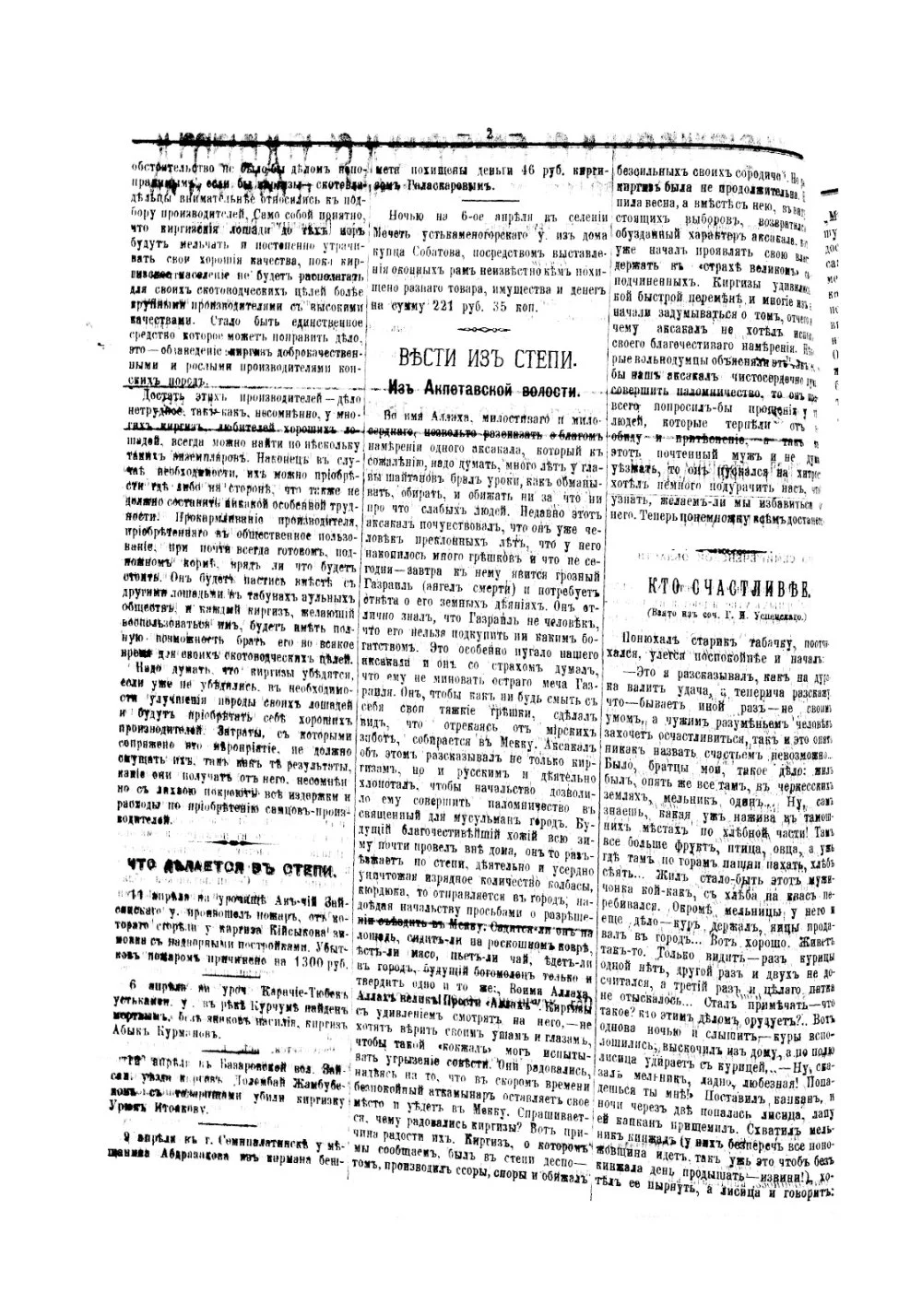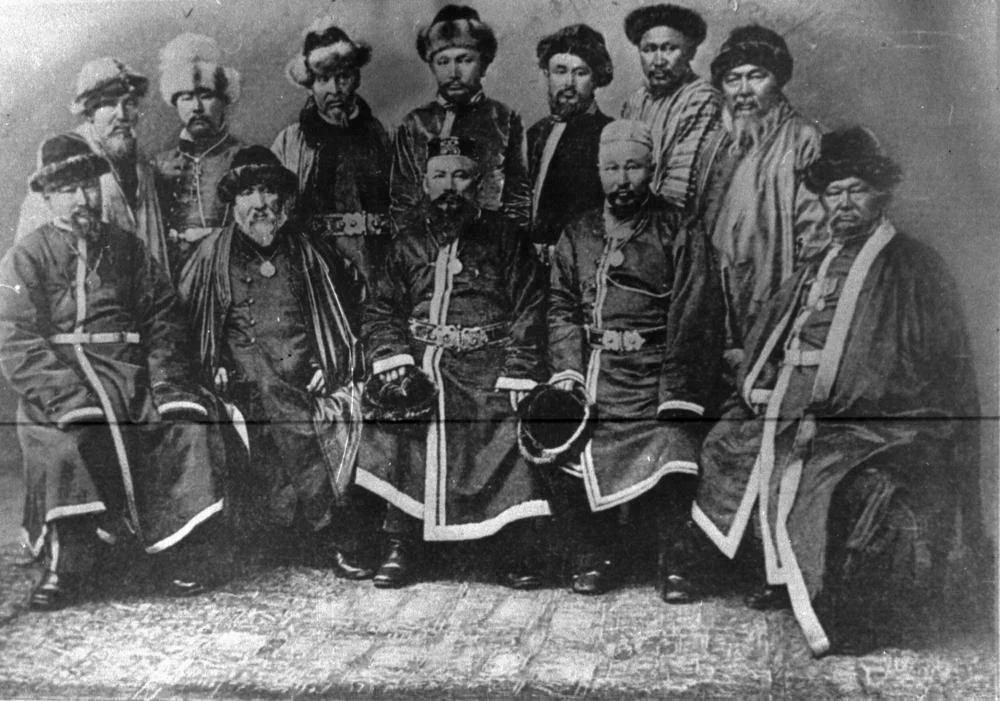As the nineteenth century gave way to the twentieth, a great wave of awakening surged through Kazakh intellectuals, sparking a passionate quest for knowledge. This outpouring of intellectual zeal led to an explosion of new magazines and newspapers being published in Kazakh, heralding the dawn of a new era in sharing culture.
However, what these intellectuals wrote went beyond only spreading knowledge. Soon, a variety of publications emerged, covering topics like business, society, politics, art, and humor. Qalam invites you to explore snippets from Kazakh publishing culture and history, offering a glimpse into the important issues of the past.
Published in Omsk, the Kirgizskaia Stepnaia Gazeta served not only as the official printed organ of the tsarist administration in the steppe region, publishing decrees, resolutions, and political chronicles, but it was also an essential tool of ideological influence on the local population. One of the important aspects of propaganda in the late nineteenth century was the introduction of a new colonial administrative reform and the gradual elimination and discrediting of the local aristocracy, which intensified especially after the adoption of the ‘Provisional Rules on Governance in the Ural, Turgay, Akmola, and Semipalatinsk Regions’ in 1868.
The council of aqsaqals (elders), formed on a tribal basis, was particularly affected as the newly created district chiefs under the reform, appointed by the military governor, represented territorial rather than tribal interests.
Thus, in 1895, the Kirgizskaia Stepnaia Gazeta published a somewhat caricatured note, written by an anonymous ‘Kazakh from Akbettau’ about an unnamed idle aqsaqal who, in his old age, had long promised to make a pilgrimage to Mecca and free the local population from arbitrariness and oppression. Yet, he had been evading this promised step for years, seemingly in an effort to maintain his power.
News from the Steppe
From the Akpettau Volost
In the name of Allah, the Most Gracious and Most Merciful, let us deliberate on the good intentions of one aqsaqal who, regrettably, seems to have spent many years learning from the devil how to deceive, rob, and oppress weak people without reason. Recently, this aqsaqal began to realize that he is now at an advanced age, that he has committed many sins, and that it won’t be long before the fearsome Azrael (the angel of death) visits him to demand an account of his earthly deeds. He knows perfectly well that Azrael is not human and cannot be bribed with any riches. This terrified our aqsaqal, who feared he could not escape Azrael’s sharp sword.
To somehow absolve himself of his heavy sins and to appear as if he is renouncing worldly concerns, the aqsaqal declared his intention to embark on a pilgrimage to Mecca. He spoke about this not only to Kazakhs but also to Russians and actively petitioned the authorities to grant him permission to visit the sacred city of the Muslims.
The would-be devout haji spent nearly the entire winter away from home, tirelessly traveling across the steppe, diligently consuming a fair share of sausage and fat-tailed lamb. At other times, he would head to the city, pestering officials with requests for permission to make his journey to Mecca.

Kirgizskaia Stepnaia Gazeta/From open access
As expected, this cunning elder had no intention of going anywhere, and the article continues to tell us:
The people around him rejoiced, hoping that the troublesome atqaminеri
However, their joy was short-lived. As soon as spring arrived, and with it the upcoming elections, the untamed character of the aqsaqal resurfaced. He began reasserting his authority, keeping his subordinates in ‘great fear’.
The Kirgizskaia Stepnaia Gazeta (in Kazakh, Dala Uälaiatynyñ Gazetі) was a special supplement to the Akmolinsk (1888–1905), Semipalatinsk (1894–1905), and Semirechensk (1894–1901) regional gazettes. It was published in Omsk in Russian with additional content in Kazakh.




